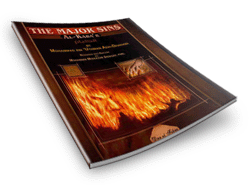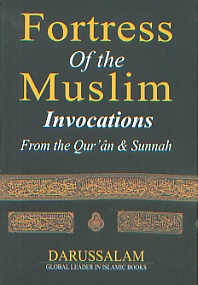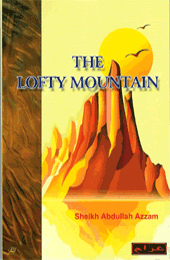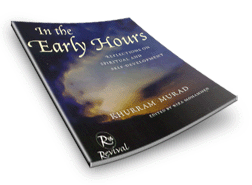Clarifying the Misconceptions with regard to the ahkaam of Sayyid Qutb adding clarity by which detailed criticisms overide general praise
Shaykhul-Islam Imaam Muhammad Naasiru-Deen al-Albanee said
commenting upon the book ‘al-Awaasim Mimmaa Fee Kutub Sayyid Qutub Min al-Qawasim’ of Shaikh Rabee’ bin Haadee,
"Everything with which you have refuted Sayyid Qutb is the truth (haqq) and is correct (sawab). And it will become sufficiently clear from this refutation to every one who has read anything from "The Islamic Heritage" that Sayyid Qutb had no knowledge of the Usool (fundamentals) or the Furoo’ (subsidiary matters) of Islaam. So may Allaah reward you with the best of reward, O brother Rabee’ for fulfilling the obligation of explaining and uncovering his ignorance and deviation from Islaam."
Alamaah ash-Shaykh Abdul-Muhsin al-'Abbadd haafidhahullaah - said:
" The book ‘Dhilaalul-Qur’aan’ or ‘Fee Dhilaalil-Qur’aan’ of Sayyid Qutb - rahimahullaah - is one of modern tafseers based upon opinion and not narrations and reports; and it is known that the people of opinion (ra-y) and those who speak from their opinions, and speak in their own style - then both error and correctness will be seen from them; they will be correct (sometimes) and mistaken (sometimes).
A person who does not have understanding, and is not grounded upon knowledge - then it is better for him that he does not refer to it. Rather he should refer to the books of the notable scholars - such as the Tafseer of Ibn Katheer, the Tafseer of Ibn Jareer and the Tafseer of Shaikh ‘Abdur - Rahman ibn Sa’dee - from the later scholars - for these are the explanations of the scholars.
As for Sayyid Qutb - rahimahullaah - then he is one of the writers - meaning that he writes in his own style, and his own words, and speaks with words not based upon.... Therefore, if a person reads he will find: What so and so said, what so and so said, and ‘Allah’s Messenger said’ ... and so on. Meaning - those which gather narrations and give importance to the narrations. But his is based upon intellect and speech according to opinion - which is why speech comes from him which is not established and is not correct - therefore one should be occupied...life is short and not long enough for a person to read everything, so since this is the case - then one must read that which is beneficial and which is definitely useful, and the speech of the people of knowledge..., the people of knowledge who are scholars and not just writers; writers are other than scholars, a writer is other than a scholar. The writer is a person of letters - someone who has the ability to write and produce literature. So he speaks and produces words - some of which he is correct and some of which he is mistaken in. He may make mistake in wording and produce a phrase that is not good, and not fitting - but it occurs due to his speaking flowingly and using his own expressions. Therefore, in the words of Sayyid Qutb - rahimahullaah - there are things that are not befitting. In the words of Sayyid Qutb, in his works concerning tafseer and other than it there are unbefitting words and things that are not appropriate, and not befitting that a Muslim should express and say them.
As for the saying that no one has explained Tawheed as well as Sayyid Qutb did, then this is not correct at all. Tawheed is not taken from the speech of Sayyid Qutb but rather from the speech and precise scholars such as al-Bukhaaree and other than al-Bukhaaree who brought chains of narration and ahaadeeth from Allah’s Messenger (SAW), and they clearly explained Tawheed and clarified Tawheed and the reality of Tawheed. Then those scholars likewise who are knowledgeable of Tawheed - then that is not their own composition, composed in their own style and in the manner of literary works, but rather they base that upon the Speech of Allah, and the speech of His Messenger - salawaatullaahi wa salaamuhu wa barakaatuhu ‘alaihi - this is the reality of those (scholars) who wrote about Tawheed and occupied themselves with Tawheed." *
*[He said this after his lesson from ‘Sunan an-Nasaa-ee in al-Masjid an-Nabawee on 7/11/1414H]
al-Imaam Abdul-Azeez Bin Baz rahimahullah
Some parts of the book of Sayyid Qutb ‘at-Tasweer al-Fannee fil-Qur’aan’ were read to him such as his speech about Moosaa - ‘alaihis-Salaam - upon whom he said: "Let us take Moosaa - as the example of the leader of excitable nature - and this excitable impulse quickly passes away and he regains his composure, as is the case with the excitable folk." Then he said with regard to the Saying of Allah - the Most High - "Fa as-ba-hu fil madinati kha bi fan..." :- "This is the description of a well known state: the restlessness or fear of one expecting evil at every turn - and this is the characteristic of the excitable folk." [‘at-Tasweer al-Fannee fil-Qur’aan’: p.200,201,203. 13th ....]
So the Shaikh replied to this:
"Mockery of the Prophets is apostasy in its own."
again
A section of the book "Kutub wa Shakhsiyaat" (p.242) was read out to the Shaikh and in which Sayyid Qutb accuses of Mu’awiyah and Amr Ibn al-Aas of lying (kadhib), deception (ghish), treachery or trickery (khadee’ah), hypocrisy (nifaaq), and taking bribes (rishwah).
So he replied: "These are repugnant words!! These are repugnant words. Revilement of Mu’awiyah and of Amr Ibn al-Aas. All of this is repugnant and evil words. Mu’awiyah and Amr and whoever was with them made ijtihaad and erred, and those who perform ijtihaad and err then may Allaah pardon us and them.
al-Imaam Muhammad Ibnu-Saalih al-Uthaymeen
Question: "What is your saying concerning a man who advises the Sunni youth to read the books of Sayyid Qutb, especially ‘Fee Dhilaal il-Qur’aan’ and ‘Ma’aalim Fit-Taareeq’, without warning about any of the errors and deviations present in these books?"
Answer: "My statement – may Allaah bless you – is that whoever gives sincerity of purpose to Allaah, His Messenger, and his brother Muslims, that he should encourage the people to read the books of those who have preceded us from the books of tafsir and other than tafsir. These books contain more blessings, are more beneficial and are much better than the books of the later ones. As for the tafsir of Sayyid Qutb – may Allaah have mercy upon him – then it contains great calamities, however we hope that Allaah pardons him. In it are great calamities, such as his tafsir of Istiwaa and his tafsir of "Qul Huwallaahu Ahad", and similarly, his description of one of the Messengers with something unbefitting."
Source:
From the Cassette: Aqwaal ul-Ulamaa Fee Ibtaal Qawaa’id wa Maqaalaat Adnaan Ar’oor, and checked by Shaikh Ibn Uthaimeen himself on 24/4/1421H, with one slight revision who changed the phrase "Anaa Ra’yee…" to "Anaa Qawlee…".
Alamaah Saalih al-Fawzaan
Question: "[Adnaan Ar’oor] said, "Why is Imaam Ahmad not reproached for his takfir of the one who abandons prayer and yet Sayyid Qutb is reproached merely because some of these expressions occurred from him (i.e. his takfir of Muslim societies). So we say: This one performed takfir of the Muslim societies (i.e. Qutb), and yet Imaam Ahmad – may Allaah have mercy upon him – is not reproached despite his judgement of kufr against all these societies [meaning that the majority of them do not pray]."
So what is your comment upon this?"
Answer: Imaam Ahmad is a scholar and a sage (erudite, sagacious) who knows the evidences and the manner of extracting proof from them and Sayyid Qutb is an ignoramus (jaahil) who has no knowledge or cognisance and neither does he have any evidences for what he says. Hence, equating between Imaam Ahmad and Sayyid Qutb is injustice (dhulm) [because Imaam Ahmad has many evidences from the Book and the Sunnah for the one who deliberately abandons the prayer whereas Sayyid does not have a single piece of evidence for his takfir of the Muslims in general. Rather the evidences are in opposition to what he says]."
Question: "Likewise he (Adnaan Ar’oor) says, "I do not know of anyone who has spoken about the affairs of Manhaj in the manner that Sayyid Qutb has spoken of them. And he is correct in the vast majority of what he has written." He (Ar’oor) was asked about this statement of his and he replied, "By the word minhaaj here I mean the issues of reform, elections and assassinations. And by "in his time" I mean the Fifties."
Answer: "He (Ar’oor) does not know because he is ignorant. As for us, then we know – and all praise is due to Allaah – that the scholars both prior to and after Sayyid Qutb, opposed him."
Source:
From the Cassette: Aqwaal ul-Ulamaa Fee Ibtaal Qawaa’id wa Maqaalaat Adnaan Ar’oor. What is in square brackets was added by Shaikh Salih al-Fawzaan himself as a further clarification.
Fatwaa of the Imaam, Alaamah, al-Bahr, ash-Shaykh, al-Muhaddith Hammaad al-Ansaaree
The Shaikh – rahimahullaah - was asked about the statement of Sayyid Qutb, "And it
is necessary for Islaam to judge, since it is a unique, constructive and positivist aqidah
which has been moulded and shaped from Christianity and Communism together, in
the most perfect of ways and which comprises all of their (i.e Christianity and
Communism’s) objectives and adds in addition to them harmony, balance and
justice." (Ma’rakat ar-Ra’samaaliyyah wal-Islaam).
The Shaikh replied, "If the one who said these words was alive, then his
repentance should be sought, so if he repents (then so) otherwise he is to be killed
as an apostate. And if he has died then it is obligatory to explain that these words are
falsehood. However we do not perform takfir of him since we have not established the
proof against him."
Source:
From the book of Shaikh Rabee’ ‘al-Awaasim Mimmaa Fee Kutub Sayyid Qutub
Minal-Qawaasim’ (p. 24) and who read it out to Shaikh Hammaad himself on the
night of 3/1/1415 in order to corroborate it
Fatwa of Imaam ash-Shaikh Muhammad Amaan Al - Jaamee rahimahullah said in answer to the question:
"Noble Shaikh, a man who fell into many innovations - such as the saying that "the Qur’aan was ‘made’ by Allah - not made by man". And who says that Moosaa was the example of a man who was of excitable and emotional nature..."
The Shaikh said: "Halt at the first question, - what did he say: "Excitable?" - "The first question: Is it permissible to say that the Qur’aan was made by Allah and not by man. This is very serious speech, it will confuse the innocent/naive folk. Since a simple student, if he hears that the Qur’aan is made by Allah - then he will understand that what is being spoken of is the Word of Allah. So the word ‘made’ (Sun’) means that it is made and created by Allah - Allah made it and made all of the creation, and is the Creator of all of the creation - and that He is the One Who made, i.e. created the Qur’aan.
This is Kufr in Allah, since the Qur’aan is not made - rather it is the speech of Allah. Allah - the Most High - says:
"And if any of the Mushriks seek your protection, O Muhammad, then grant him your protection so that he may hear the Speech of Allah - which you recite to him" [at-Tawbah:6]
So the Speech which the Mushriks and other than the Mushriks heard form Allah Messenger, (Sallallahu 'alaihi wa sallam), is this Qur’aan - what is between the two covers of the Mushaf. So the saying that the Qur’aan is made by Allah is a great mistake and is misleading for the people.
And he says that Moosaa is an example of an emotional and excitable man by nature - Moosaa - Who? The one whom Allah spoke to directly, one of the Messengers, one of the most prominent Messengers of firm resolve - slighting them is Kufr and Apostasy. Whoever slights a single Prophet has slighted all of the Prophets and committed Kufr, and whoever denies the Messengership of a single Messenger or the Prophethood of a single Prophet - then he committed Kufr; since disbelieving in a single one of them is to disbelieve in them all. This is the speech of the secularists who give no value to Allah or the Messenger of Allah, or the Books of Allah.
If this speech is written in books then the questioner should - after completing these questions referring to devilish things - he should mention to us that book so the we can warn about it. That is the second question, read what comes after it. ....(it is read)...
The second question from the questions about these insolent sayings is: He says that the person holds that saying of Wahdatul - Wujood.
Do you know the meaning of ‘Wahdatul - Wujood’? If all of those present were students of knowledge then we would not need to explain ‘Wahdatul - Wujood’. But this sound [i.e. the microphone, etc.] may reach those who do not know the meaning of ‘Wahdatul - Wujood’, we have to explain the meaning of ‘Wahdatul - Wujood’. The meaning of ‘Wahdatul - Wujood’ is that all existence is a single essence - i.e. it is not to be said: Creator and creation, Lord and those He is Lord over, all in existence is a single essence - all in existence is one. This was the religion of Ibn ‘Arabee at-Taa-ee - not the well known Ibn Arabee who was from Ahlus-Sunnah, insha’Allah and from the scholars of the Maalikees. But rather, Ibn ‘Arabee the evil one - the disavowed nobody - who came - as Shaikhul - Islaam said - with Unbelief which the Unbelievers of Quraish did not bring, since he claimed he was Allah - one and the same, and that all existence is a single thing. He Creator and the creation are the same - this is ‘Wahdatul - Wujood’. Whoever believes in ‘Wahdatul - Wujood’ is an Apostate even if he wears is flowing robe. Yes, read that which comes after ....
And the questioned mentions that the writer makes accusations against ‘Uthmaan - radiyallaahu ‘anhu -, so perhaps he has the poison of the Shee’ah - and this is a lesser disease compared to what has preceded and to what is known from him - he has mentioned the writer and mentioned the name of the book; and the questioner says that he attacks ‘Uthmaan many times in his book ‘al-‘Adaalah al-Ijtimaa’iyyah’ *
[pp. 141, 142, 155, 159, 160, 161, 163, 172, 173, 174, 175, 176 : 9th edition, 1403H, Daarush - Shurooq.]
The questioner mentions - and the responsibility for truthfulness is upon the questioner - that the author of this book ‘al-‘Adaalah al-Ijtimaa’iyyah’ (Social Justice) causes doubt about Paradise and the Fire. So if he brings doubt about Paradise and the Fire and matters of the Hidden and the Unseen like them - then this means that he was suffering from the poison of the modernists (‘Aqlaanee), and I do not know him to have been a modernist. Modernists are something other than those who depend upon intellect, and attributes are many these days.
The scholars of ‘Kalaam’ [theological rhetoric] are called the ‘people of intellect’ (al-‘Aql) and ‘the companions of intellectual affairs’. Then the ‘Aqlaaniyyah’ that has appeared and has been taken up as its base today the United States (of America) - then all the ahaadeeth that pertain to matters of the Hidden and the Unseen - then to the modernists the fact that the isnaad of the hadeeth is authentic (saheeh) is not enough. Rather the principle which they follow is that they tale the authentic ahaadeeth - and particularly those which speak of the Dajjaal, the Mahdee, Paradise and the Fire - and say that they must be judged according to the intellect. The intellects of who? The intellects of the modernists, not - common folk like ourselves? Then whatever the intellects of the modernists accept then it is to be accepted, otherwise it will be rejected.
The first of the modernists and their leader - who rejected all the ahaadeeth, after living in France for a long time and who the returned to the Islamic East - as they say - he said: I went to Europe and found an Islaam without there being any Muslims. Islaam that has taken form. Then I went back to the lands of the Muslims and found Muslims without Islaam, meaning that we are Muslims without Islaam, and that over there in Europe here was Islaam which had taken form without any Muslims".
O youth, you do not live in a remote desert today - the world is open - what is there in Europe except for intoxicants, evils and sins? But the simple-minded say: They do not break appointments, and they do not play around with prices, and if they see a seller selling that which others sell for ten - and he sells it for eight, then they disapprove of that...
Do you know who is the one who said this, and his followers consider this to be genius. Genius of the ‘greater imaam’ the ‘great imaam’ Muhammad ‘Abduh - the one whose speech this is and he was the leader of the modernists present today and the founder of the modernists school. He is the one who denied these things, and this author which the questioner is referring to is just a student who studied under the students of Muhammad ‘Abduh. So let us be clear and frank in order to free ourselves from responsibility - the modernists have books which are widely circulated today, and they wage a fierce war against Islaam - with regard to both the fundamentals and the details of the Religion, using the claim that the ahaadeeth must be checked against the intellect - even though the book and the author are known, and as they say - when the cause becomes known amazement passes away.
So our advice for our youth is that they should suffice - due to their age and level of knowledge and their level - they should suffice with the well known books, whose authors are well known for correctness of their ‘Aqeedah and Manhaj - until they mature, and it is not fitting that they should read everything that comes into their hands, since it is the case that with regard to some of those modernists then many people, many writers and many students of knowledge may have a favourable opinion of them and thus fall victim to this favourable opinion of them. So because we have books that are sound with regard to the ‘Aqeedah of their authors - then you have no need to read these other books. My advice to you are this level is that you restrict yourselves to the sound books, then that you expand when you proceed in age and knowledge, and success is granted by Allah - and may Allah extol and send peace upon our Prophet Muhammad and his true followers and companions." *
[Questions and Answers in ‘al-Masjid an-Nabawee’ : 22/6/1404H.]
And he said: "The book ‘az-zilaal’ of Sayyid Qutb is a tafseer that is not a tafseer based upon narrations, not a tafseer from the language. Rather it is a composition containing a confused mixture of the ideas of the Ash’arees, the ideas of ‘Wahdatul - Wujood’ and the ideas of the Soofees - and he was an Ash’aree - about which there is not dispute.
So I advise small students not to read the book ‘az-Zilaal’, just as I advise the greater students - from the students of knowledge - to read it in order to make clear to lesser students the futility contained in it - as advice to them." *
[A lecture: Answers to questions about the manhaj of Ahlus - Sunnah wal - Jamaa’ah in calling to Allah. Cassette no. 1. Jeddah 4/1413H]
So according to the above, the fatwa of ibn Jibreen concerning Sayyid Qutb is to be abandoned and from that whih is anialiated due to its baselessness and whatever fatwa which is like the fatwa of Ibn Jibreen is also to be discarded as unreliable and unorthodox as these fatwa are full of delusion, baselessness and pure wahm.
And there are many more criticisms of Sayyid Qutb from other scholars such a Mahmood Shakir, Ubayd al-Jaabiree, Saleem al-Hilaalee, Ali al-Halabee and other than him. Suffiecient is the information above to dispel any doubts about the unorthodoxy of Sayyid Qutb and the ideas he propegated whom all modern day terrorist resort to as a theological and methodological mentor










